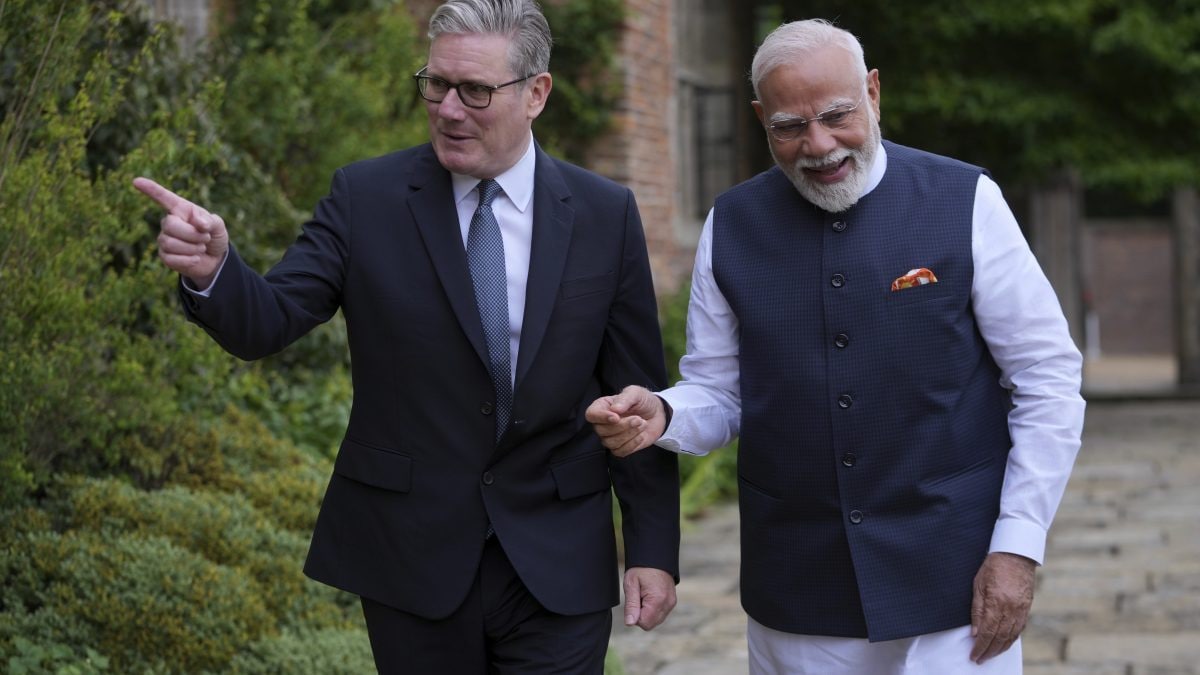

The recently signed India-UK Free Trade Agreement (FTA) has been hailed as a landmark achievement, poised to double bilateral trade by 2030 and unlock numerous economic opportunities for both nations. However, a potential sticking point looms on the horizon: the UK's proposed Carbon Border Adjustment Mechanism (CBAM), also known as a carbon tax, slated for implementation in 2027. This levy, aimed at taxing carbon-intensive imports, has the potential to disrupt the positive momentum generated by the FTA and cast a shadow over the long-negotiated trade deal.
The FTA, signed on July 24, 2025, eliminates tariffs on 99% of Indian exports to the UK, covering almost 100% of trade value. In return, India will reduce tariffs on 90% of UK goods, with 85% becoming duty-free within a decade. This move is expected to boost India's annual exports by $5 billion and create over one million jobs within five years. Key sectors like textiles, leather, processed food, and marine products are set to benefit significantly from duty-free access to the UK market.
However, the UK's CBAM could throw a wrench into these projections. The UK government decided in December 2023 to implement its CBAM starting in 2027, following the European Union's lead. This mechanism will place a carbon price on imported goods from sectors deemed at risk of "carbon leakage," including iron and steel, aluminum, fertilizer, hydrogen, ceramics, glass, and cement.
India has previously expressed strong concerns over carbon border taxes, terming them discriminatory and a potential trade barrier. A recent report by the Global Trade Research Initiative (GTRI) estimated that India's exports worth $775 million to the UK, including iron, steel, aluminum, fertilizer, and cement, could be impacted by the CBAM. The tax is expected to range between 14% and 24%, potentially affecting key industrial exports.
Notably, the India-UK FTA does not include any formal provision regarding the UK's proposed carbon tax. This omission has raised concerns that India may have missed an opportunity to secure a carve-out or exemption clause to protect its carbon-intensive exports. Without a resolution within a legal framework, India's position is weakened, and the duty concessions won for 99% of its exports to the UK could be undermined if the UK raises tariffs on industrial imports due to CBAM.
Despite the lack of a formal provision, there is a diplomatic understanding between the two countries that allows India to take steps to mitigate the impact of the carbon tax on its exports if it is implemented and negates the trade benefits of the agreement. This understanding, formalized in a "note verbale" (a diplomatic communication between two countries), gives India the freedom to rebalance the agreement by taking away concessions or implementing counterbalance measures.
While the details of these potential countermeasures remain unclear, the Indian government has asserted its right to retaliate or rebalance concessions if the UK's carbon tax materially impacts domestic exports. This could involve imposing tariffs on UK goods or taking other steps to offset the economic disadvantage caused by the CBAM.
The situation remains fluid, and the actual impact of the UK's carbon tax on the India-UK trade relationship will depend on several factors, including the specific design of the CBAM, the level of the tax, and the countermeasures adopted by India. However, the absence of a formal agreement on the issue within the FTA has created uncertainty and raised the potential for trade friction between the two countries. As the UK moves closer to implementing its CBAM in 2027, this issue will likely remain a key point of discussion and negotiation between India and the UK, potentially influencing the overall mood and success of the FTA.